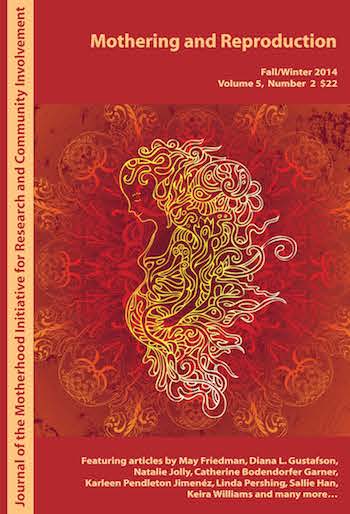Public Mothering: How Celebrity Mediascapes Shape Public Understandings of Transnationally Adopted Families
Abstract
Transnational adoption is a unique site in which to explore changing ideas andattitudes about kinship, womanhood and motherhood in Canada. This paper combinesmedia analysis and ethnographic research with Canadian adoptive motherswho went to China to adopt children. It examines how ideas about transnationaladoption are shaped in the media and in our communities. The celebrity providesa privileged site for contesting and negotiating how transnational adoption isunderstood by the general public. The media representations of transnationallyadoptive motherhood are reflected back in the everyday interactions of adoptivemothers in their communities. Mothers who participate in transnational adoptionsare constructed as either ‘good’ or ‘bad,’ both through the media and in everydaysocial interaction. Mothers are either perceived as ‘saints’ who save children fromunfortunate circumstances or ‘villains’ who purchase children. This research pointsout how women will justify their decision to adopt by aligning their adoption storieswith the discourse of ‘good’ adoption or ‘saving’ children. Transnational adoption isimmersed in a complicated discourse of critique and praise creating a dichotomy ofreactions to these public families. Families with transnationally adopted childrenbecome public families because the children do not look like biological kin. Themedia and the communities keep watch on these families, particularly the mothersand judge their reproductive choices.Downloads
How to Cite
Issue
Section
License
All intellectual property in relation to material included on this site belongs to the Motherhood Initiative for Research and Community Involvement (MIRCI). All material on this site is protected by Canadian and international copyright and other intellectual property laws. Users may not do anything which interferes with or breaches those laws or the intellectual property rights in the material. All materials on the Motherhood Initiative for Research and Community Involvement (MIRCI) are copyrighted and all rights are reserved. Any reproduction, modification, publication, transmission, transfer, sale, distribution, display or exploitation of the information, in any form or by any means, or its storage in a retrieval system, whether in whole or in part, without the express written permission of the Motherhood Initiative for Research and Community Involvement (MIRCI) is prohibited. Please contact us for permission to reproduce any of our materials. This site may include third party content which is subject to that third party's terms and conditions of use.


